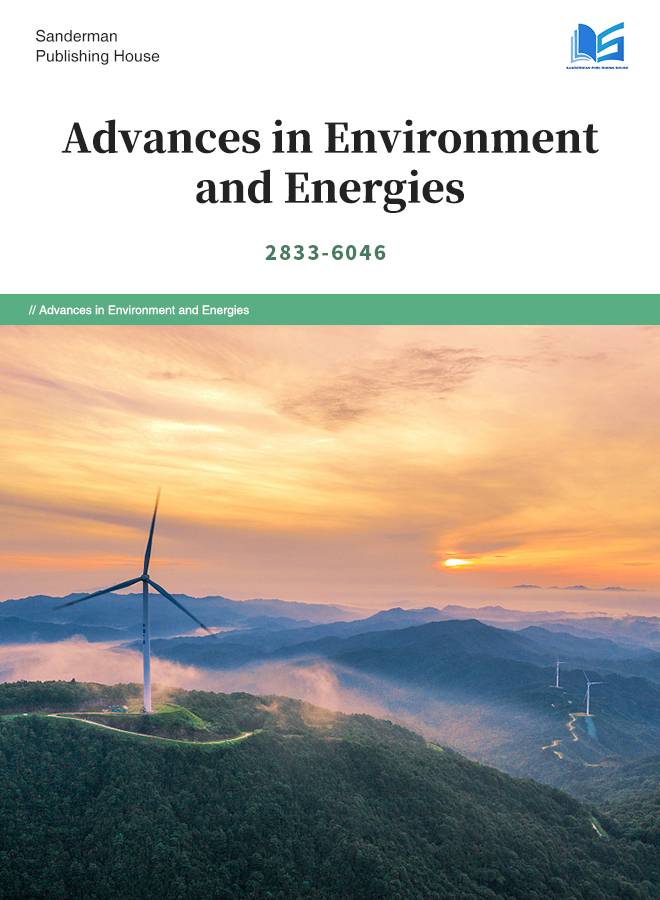
Advances in Environment and Energies

Open Access
EISSN: 2833-6046
Aims and Scope:Advances in Environment and Energies is an international, peer-reviewed, interdisciplinary journal aimed at natural scientists, technologists, social scientists and policymakers. This journal is strived to provide a platform for researchers and scholars worldwide to exchange their latest findings and results in the relevant field of Environment and Energy. Current columns cover topics including, but not limited to: Aquatic Environment, Atmospheric Environment, Environment Monitoring, Environmental Risk and Assessment, environmental physics, environmental chemistry, Environmental Biology, Environmental Health and Toxicology, environmental protection, climate change, energy policy, energy analysis, new energy technologies, energy modelling and prediction, energy conservation, energy efficiency, renewable energy and so on.
Journal Browser
Announcements
more >
Calling for papers--AEE
2023-12-21
Current Issue
Low carbon transformation of oil enterprises: study on dynamic evolution under carbon emission regulation
by Yichang Zhang
2023.2(2);10.58396/aee020201 - 23 Oct 2023
Nowadays, global warming caused by greenhouse gas emissions has become a major challenge for countries around the world in the 21st century, and the “dual carbon” goal has set the direction for China's green development, providing unprecedented opportunities for the development of low-carbon technologies in China. In order to ensure the high-quality development of oil enterprises under the goal of “dual carbon”, the low-carbon transition path of oil enterprises adopting in Carbon Dioxide-Enhanced Oil Recovery (CO2-EOR) is explored. A dynamic evolutionary game model of the government, oil companies and consumers under carbon emission regulation is established, and the effects of carbon tax, CO2-EOR technology emission reduction efficiency, market mismatch and other variables on the strategic choices of the game subjects are explored, and the evolutionary paths of the three are simulated using Matlab software. The results suggest that oil enterprises are less willing to invest in CO2-EOR technology in scenarios where carbon tax costs are high, environmental benefits are lower, and market losses are higher, resulting in slower equilibrium evolution towards a realistic steady state. Based on these findings, we propose three countermeasures for the low-carbon transition of oil enterprises under the “dual carbon” target: (1) Optimizing the overall taxation design. (2) Promoting low-carbon technology innovation. (3) Upgrading the oil market. The results provide valuable insight into promoting the large-scale application of CO2-EOR technology in oil enterprises in the future.


